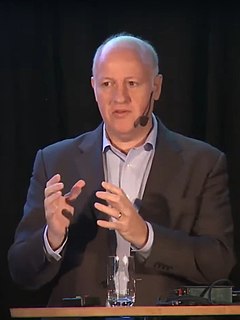Population Research Institute may refer to:

A think tank, or policy institute, is a research institute that performs research and advocacy concerning topics such as social policy, political strategy, economics, military, technology, and culture. Most think tanks are non-governmental organizations, but some are semi-autonomous agencies within government or are associated with particular political parties, businesses or the military. Think-tank funding often includes a combination of donations from wealthy individuals and personal contributions, with many also accepting government grants.

The University of Florida is a public land-grant research university in Gainesville, Florida. It is a senior member of the State University System of Florida, traces its origins to 1853, and has operated continuously on its Gainesville campus since September 1906.

North Carolina State University is a public land-grant research university in Raleigh, North Carolina. Founded in 1887 and part of the University of North Carolina system, it is the largest university in the Carolinas. The university forms one of the corners of the Research Triangle together with Duke University in Durham and the University of North Carolina at Chapel Hill. It is classified among "R1: Doctoral Universities – Very high research activity".
Health, according to the World Health Organization, is "a state of complete physical, mental and social well-being and not merely the absence of disease and infirmity". A variety of definitions have been used for different purposes over time. Health can be promoted by encouraging healthful activities, such as regular physical exercise and adequate sleep, and by reducing or avoiding unhealthful activities or situations, such as smoking or excessive stress. Some factors affecting health are due to individual choices, such as whether to engage in a high-risk behavior, while others are due to structural causes, such as whether the society is arranged in a way that makes it easier or harder for people to get necessary healthcare services. Still, other factors are beyond both individual and group choices, such as genetic disorders.
LPI may refer to:

Daejeon is South Korea's fifth-largest metropolis, with a population of 1.5 million as of 2019. Located in the central region of South Korea alongside forested hills and the Geum River, the city is known both for its technology and research institutions, and for celebrating its natural environment, with most mountains, hot springs, and rivers freely open for public use. Daejeon serves as a hub of transportation for major rail and road routes, and is approximately 50 minutes from the capital, Seoul, by KTX or SRT high speed rail.
ISI or Isi may refer to:

The Russian Academy of Sciences consists of the national academy of Russia; a network of scientific research institutes from across the Russian Federation; and additional scientific and social units such as libraries, publishing units, and hospitals.

The Max Planck Society for the Advancement of Science is a formally independent non-governmental and non-profit association of German research institutes. Founded in 1911 as the Kaiser Wilhelm Society, it was renamed to the Max Planck Society in 1948 in honor of its former president, theoretical physicist Max Planck. The society is funded by the federal and state governments of Germany.

Jodhpur is the second-largest city in the Indian state of Rajasthan and officially the second metropolitan city of the state. It was formerly the seat of the princely state of Jodhpur State. Jodhpur was historically the capital of the Kingdom of Marwar, which is now part of Rajasthan. Jodhpur is a popular tourist destination, featuring many palaces, forts, and temples, set in the stark landscape of the Thar Desert. It is popularly known as the "Blue City" among people of Rajasthan and all over India. It serves as the administrative headquarters of the Jodhpur district and Jodhpur division.

Vikram Ambalal Sarabhai was an Indian physicist and astronomer who initiated space research and helped develop nuclear power in India. He was honoured with Padma Bhushan in 1966 and the Padma Vibhushan (posthumously) in 1972. He is internationally regarded as the Father of the Indian Space Program.

The National Hispanic Institute (NHI) is an international nonprofit organization dedicated to serving the future leadership needs of the global Hispanic community. Founded in 1979 in the State of Texas with the mission of serving the future leadership needs of the United States via the Hispanic/Latino community, NHI became the largest Latino youth organization in the United States. NHI is now an international organization with over 85,000 alumni worldwide and a well-known consortium of notable colleges and universities.

Bernadine Patricia Healy was an American cardiologist and the first female director of the National Institutes of Health (NIH).
Ist or IST may refer to:

The Association of American Universities (AAU) is an organization of American research universities devoted to maintaining a strong system of academic research and education. Founded in 1900, it consists of 63 universities in the United States and two universities in Canada. AAU membership is by invitation only and requires an affirmative vote of three-quarters of current members.
The Florida State University College of Social Sciences and Public Policy, located in Tallahassee, Florida, is one of fifteen colleges comprising Florida State University (FSU). The college was founded in 1973 and includes six departments: Economics, Geography, Political Science, Sociology, Urban and Regional Planning and the Askew School of Public Administration and Policy and interdisciplinary programs in African American Studies, Demography, International Studies, Interdisciplinary Social Science, and Public Health.
The Institute for Bird Populations (IBP), based in Petaluma, California is a non-profit organization dedicated to studying and monitoring bird populations, and providing land managers and policy makers with information needed to better manage those populations.
The Public Health Research Institute (PHRI) was founded in 1942 by New York City's mayor, Fiorello La Guardia, who appointed David M. Heyman to lead it as an independent not-for-profit research organization. In the late 1980s it was referred to as Public Health Research Institute - New York In 2002, they moved to Newark, New Jersey. PHRI became part of the New Jersey Medical School in 2006 and since 2013 it has been part at Rutgers University.
Om Praksh Bahl (1927–2004) was an Indian-American molecular biologist, academic and a Distinguished Professor of the State University of New York. He was known for his studies on Human chorionic gonadotropin, popularly known as the pregnancy hormone. He was associated with the World Health Organization as an adviser to their Population Council and was a member of the Population Research Committee of the National Institutes of Health. The Government of India awarded him the third highest civilian honour of the Padma Bhushan, in 1973, for his contributions to science and engineering.

Peter Daszak is a British zoologist, consultant and public expert on disease ecology, in particular on zoonosis. He is the president of EcoHealth Alliance, a nonprofit non-governmental organization that supports various programs on global health and pandemic prevention. He is also a member of the Center for Infection and Immunity at the Columbia University Mailman School of Public Health. He lives in Suffern, New York.